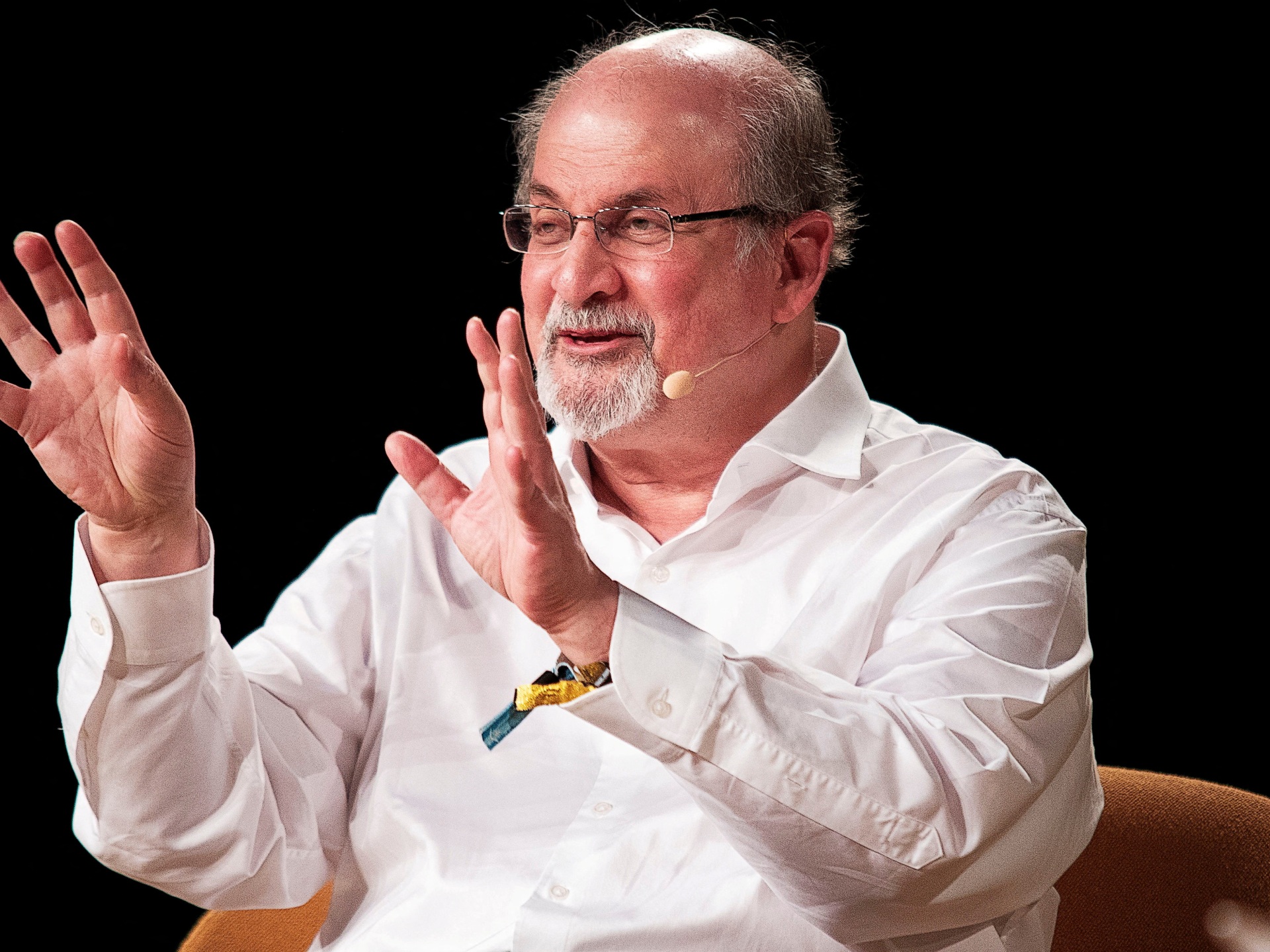
The novelist remains hospitalised with serious injuries but is now off life support and able to talk, says his agent.
Salman Rushdie was taken off a ventilator and is now able to talk after the acclaimed writer was stabbed as he prepared to give a lecture in New York state.
Rushdie, 75, remained hospitalised with serious injuries on Sunday but fellow author Aatish Taseer tweeted he was “off the ventilator and talking [and joking]”.
Rushdie’s agent, Andrew Wylie, confirmed that information.
“He’s off the ventilator so the road to recovery has begun,” said Wylie. “It will be long; the injuries are severe, but his condition is headed in the right direction.”
On Saturday, the man accused of attacking him on Friday at the Chautauqua Institution, a nonprofit education and retreat centre, pleaded not guilty to attempted murder and assault charges in what a prosecutor called a “preplanned” crime.
A lawyer for the suspect, Hadi Matar, entered the plea on his behalf during an arraignment in western New York.
A judge ordered him held without bail after District Attorney Jason Schmidt told her that Matar, 24, took steps to purposely put himself in a position to harm Rushdie, getting an advance pass to the event where the author was speaking, and arriving a day early bearing a fake ID.
“This was a targeted, unprovoked, preplanned attack on Mr Rushdie,” Schmidt said.
‘Universal ideals’
Rushdie – who for more than 30 years has faced death threats for his book The Satanic Verses – was stabbed 10 times, prosecutors said during Matar’s arraignment.
The novelist suffered a damaged liver and severed nerves in an arm and an eye, Wylie said. He was likely to lose the injured eye.
Neither local nor federal authorities have offered any additional details on the investigation. Police said on Friday they had not established a motive for the attack.
The stabbing was condemned by writers and politicians around the world as an assault on freedom of expression. In a statement on Saturday, President Joe Biden commended the “universal ideals” that Rushdie and his work embody.
“Truth. Courage. Resilience. The ability to share ideas without fear,” Biden said. “These are the building blocks of any free and open society.”
British leader Boris Johnson said he was “appalled”, while Canadian Prime Minister Justin Trudeau called the attack “reprehensible” and “cowardly”.
Writer and longtime friend Ian McEwan called Rushdie “an inspirational defender of persecuted writers and journalists across the world”, and actor-author Kal Penn cited him as a role model “for an entire generation of artists, especially many of us in the South Asian diaspora toward whom he’s shown incredible warmth”.
Rushdie, a native of India who has since lived in the United Kingdom and the United States, is known for his surreal and satirical prose style, beginning with his Booker Prize-winning 1981 novel Midnight’s Children, in which he sharply criticised India’s then-prime minister, Indira Gandhi.
The Satanic Verses drew death threats after it was published in 1988, with many Muslims regarding as blasphemy a dream sequence based on the life of the Prophet Muhammad, among other objections.
Rushdie’s book had already been banned and burned in India, Pakistan and elsewhere before Iran’s then-supreme leader, Ayatollah Ruhollah Khomeini, issued a decree calling for Rushdie’s death in 1989.
Khomeini died that same year, but the edict remains in effect. His successor, Ayatollah Ali Khamenei, said as recently as 2019 the decress was “irrevocable”.








